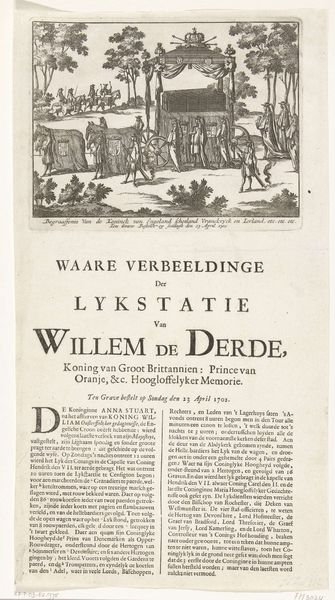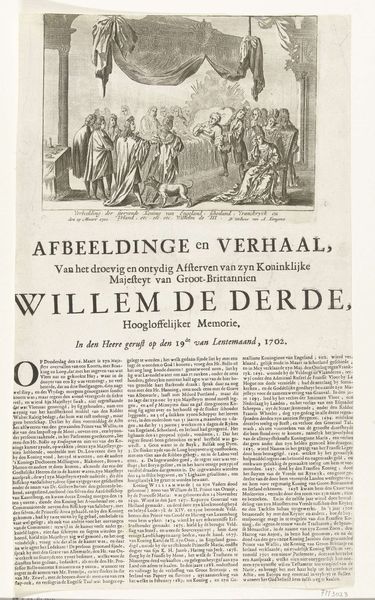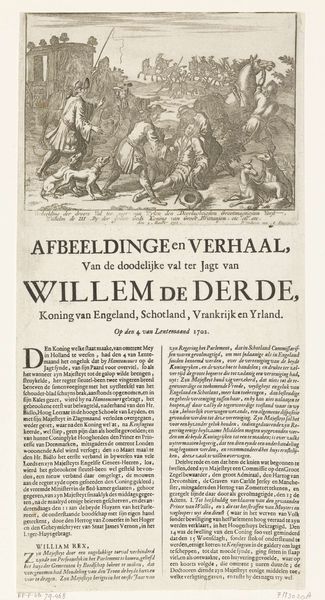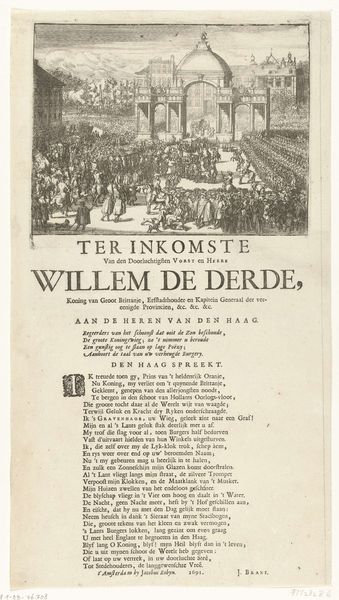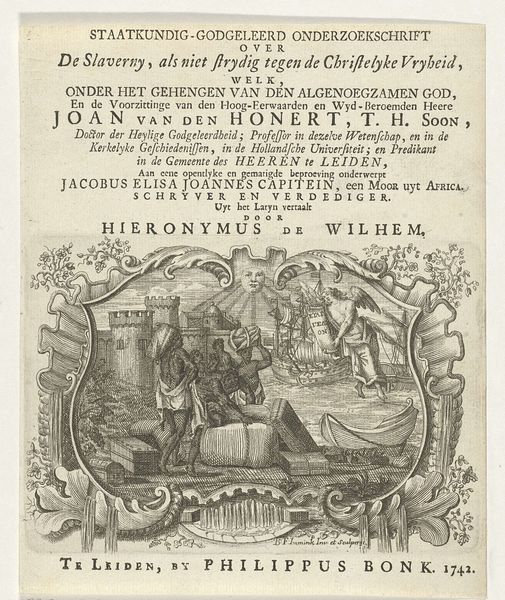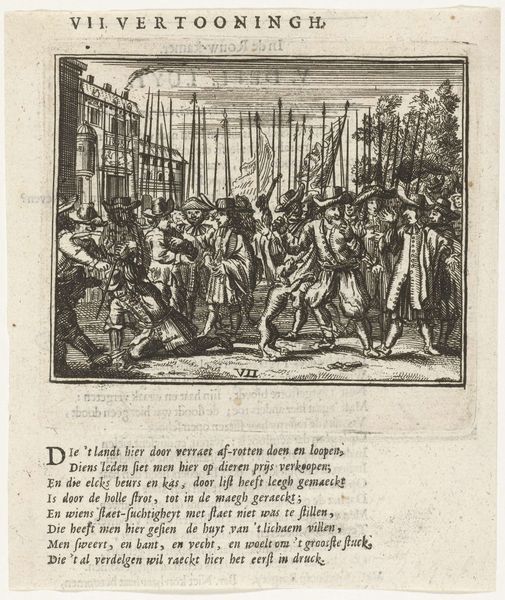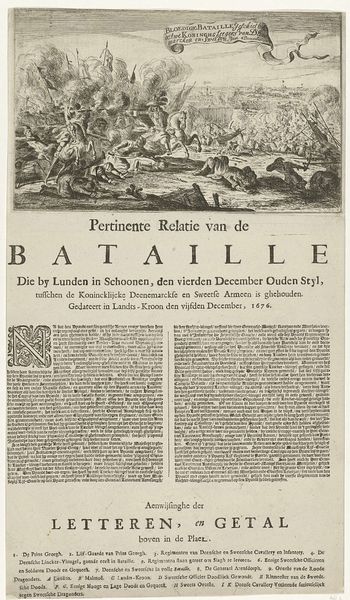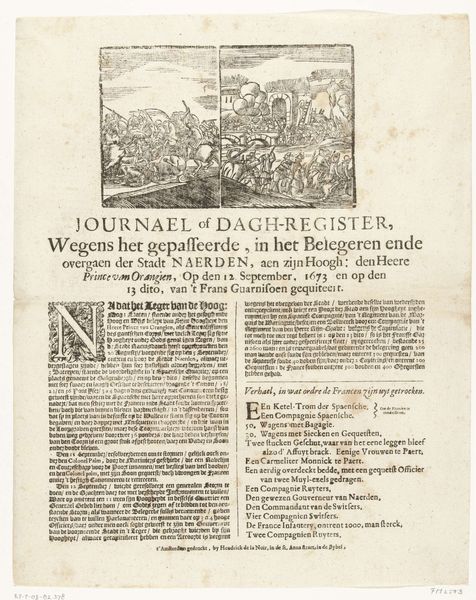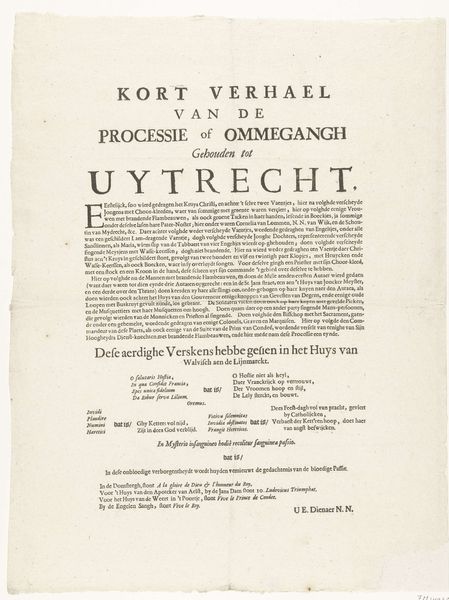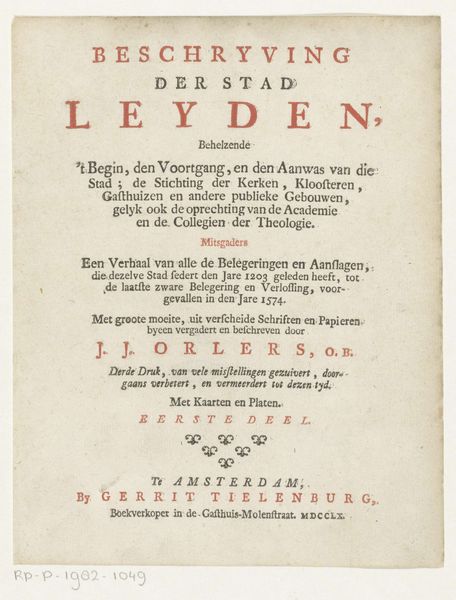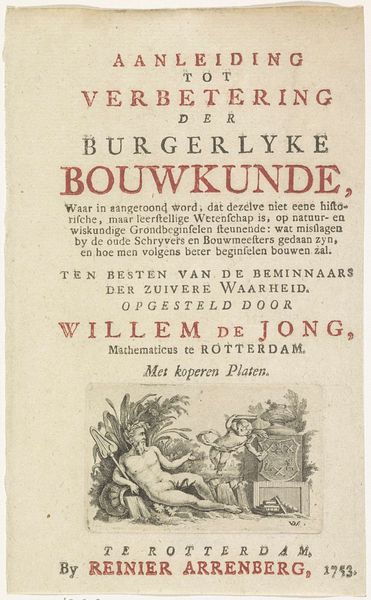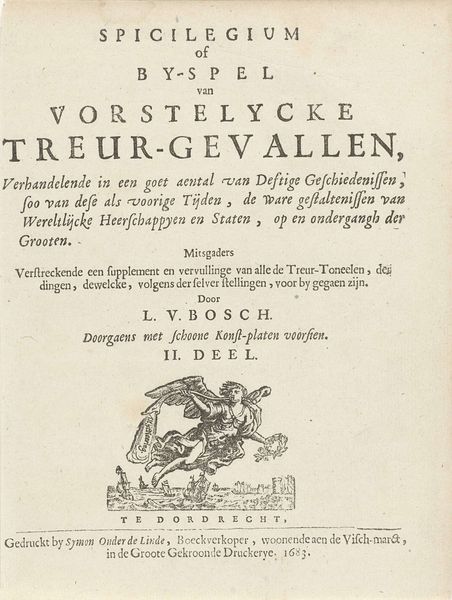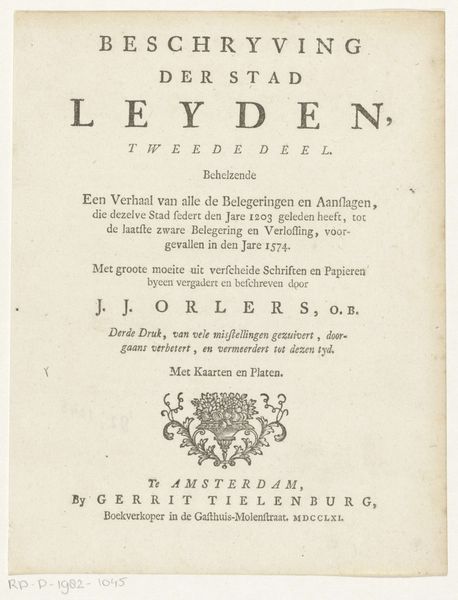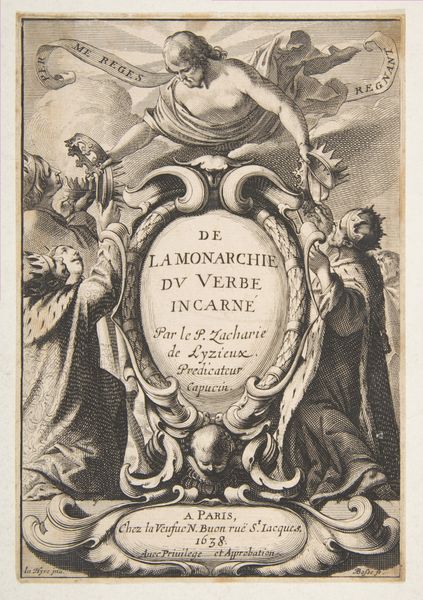
print, engraving
#
baroque
#
dutch-golden-age
# print
#
figuration
#
line
#
history-painting
#
engraving
Dimensions: height 381 mm, width 239 mm
Copyright: Rijks Museum: Open Domain
This anonymous print from 1702, now in the Rijksmuseum, depicts the funeral procession of King William III. It offers a glimpse into the public role of art in the Dutch Republic. Funeral processions of monarchs were carefully orchestrated displays of power. The image creates meaning through visual codes: the elaborate carriages, the somber figures, the sheer scale of the event. These elements emphasize the might and solemnity of the monarchy. The Dutch Republic, though a Protestant nation, still utilized visual spectacle to convey authority. This print, circulated amongst the public, reinforces the monarchy's position within Dutch society, and within the wider Anglo-Dutch world. It's neither explicitly conservative nor progressive. Instead, it reflects a society grappling with how to represent power in a changing political landscape. Art historians use sources such as prints and pamphlets to understand the social conditions that shape artistic production and interpretation, and the institutions through which art is consumed. The meaning of this print, like all art, is contingent on its social and institutional context.
Comments
No comments
Be the first to comment and join the conversation on the ultimate creative platform.
